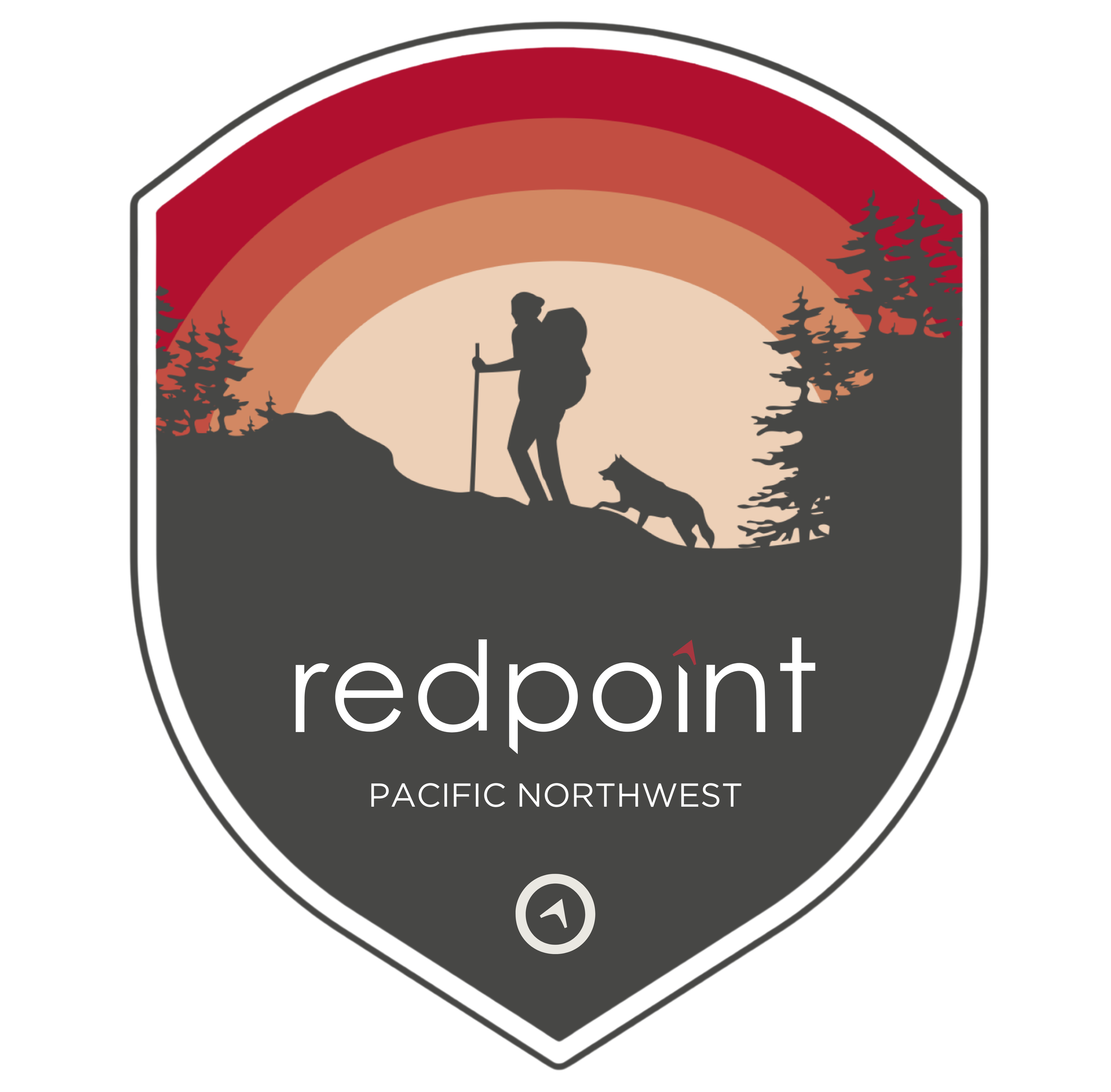
FAQs
-
Step 1 | Service Inquiry
We invite prospective clients to fill out the Services Inquiry form on our website. Once reviewed, we will schedule a 15-20 minute phone consultation to answer immediate questions and better explain how we work. The call is confidential, complimentary, and you’re under no obligation. After this call, if you feel redpoint is right for you, we will schedule an onboarding meeting.
Step 2 | Initial Assessment & Onboarding
Our partnership begins by meeting in person or talking by phone (if necessary) to take the time we need to properly discuss your experiences, preferences, strengths, values, needs, goals and barriers.
Fees begin at the official onboarding session. Our onboarding process takes place over two visits to allow time for several case management tasks that benefit the client. In general, these are the Client Onboarding steps:
1ST VISIT: 75-minutes; Initial Assessment (in person, by phone, or via telehealth)
2ND VISIT: 60-minutes; Client and Coach create an initial 30-day Action Plan together, map out roles and responsibilities, and plan for disclosure.
Case Management: Up to 2 hours; redpoint will review any pertinent records and the intake packet and follow up with responsible parties regarding our recommendations.
Step 3 | Skill Building
As you embark on your journey, we will provide space, facilitate clarity and self-discovery, and monitor your progress. We will be at your side through all the steps forward. If and when there is a step back—we call this a restart or reset—we will adapt and modify the plan to better fit your changing needs and preferences.
Step 4 | Reach Your Goals!
Continuity, consistency and clear communication will keep us on track every step of the way; these tools are essential to our process to provide the best possible quality care for you. Together, when we reach the summit, you will be well on your way to leading the intentional, purposeful, independent and more fulfilling life you deserve and realize they are not facing many of life’s great challenges alone.
-
We are flexible and available to work with you where and when you need it most. Client contact ranges from once a month wellness checks to everyday meetings during a crisis.
-
redpoint does not take insurance. The personalized and wide-ranging nature of our services are not covered by standard insurance plans, therefore we offer a wide range of services to work with many budgets. When needed, we counsel clients on available financial assistance and other resources.
-
Yes. Travel time is billed at our regular hourly rate; mileage is billed at the standard IRS rate if we use our own vehicles.
-
We provide several convenient payment options. Our preferred payment methods are ACH and bill pay, set-up directly with our account number. Other methods include Venmo (privacy setting required), personal check by mail, or a check from your Health Savings Account. You can pay your invoice by credit card for a standard fee. Make checks out to “redpoint Seattle” and mail it to the address on the invoice. Please do not provide payment directly to our coaches.
-
Yes. Ben's Fund is a great resource to families who need financial assistance with services specifically related to Autism Spectrum Disorder treatment. Ben's Fund provides grants of up to $1,000.00 per young adult each year. See more information about Ben's Fund here.
-
You can typically expect your invoice by the 5th of the month (depending on weekends and holidays).
-
All our Lead Coaches have master’s degrees in applicable fields, including social work and counseling. Our support staff has bachelor's degrees in related fields.
-
We make the selections to best ensure you are working with the person or people who best fit your needs.
-
Yes. Often, we meet in a home, on campus or in a coffee shop – whatever best suits your schedule and comfort preferences. When considering public places, together we will pick a location where you can talk openly about your situation, needs and progress.
-
Use of our services is your choice. Our goal is to support you in the best way possible. We will make every effort to refer you to another provider if we are not a good fit.
-
Medical records are stored within a HIPAA compliant system of digital and physical documents. We have security measures in place to keep your information private. At the beginning of services, we will discuss Informed Consent and share how we store your data.
-
redpoint guides individuals towards a variety of goals; most journeys seek to improve quality of life and a path forward; Whitmire works with clients presenting a wider variety of special needs and circumstances, including aging adults, rehabilitation, and those with chronic medical conditions.
-
If you or a loved one is experiencing a life-threatening emergency, call 911. Other immediate options include:
The King County Crisis Line: (206) 461-3222
National Suicide Prevention Line: 988
You can call us at (206) 953-0771 during business hours to explore if we are the right support to guide you through a crisis. If we are not able to answer, please leave a message and we will get back to you.
OR
Whitmire and redpoint Seattle are sister companies that provide creative consulting, coaching, skills training, clinical care coordination and case management services. We ensure clients enjoy the best possible quality of life by combining services they need to stay healthy and recover with pursuits that fill their days with joy, purpose and meaning. Referral partners often ask us,“I have a potential client, so who do I call?” We hope this chart will provide some clarity.
-
The heart of what we do. We collaborate with any necessary parties to coordinate solutions for complex individual health needs.
Complex Case Management: This core service supports all our work
and sets the framework for managing long-term individual care.
Medical Advocacy: To ensure individuals receive the best care possible, we work alongside them to advocate for any medical and care needs. This has a wide range including catastrophic injuries, long-term care, and graceful aging plans.
Care Teams: Managing care is multifaceted and unique to every individual. To provide and coordinate the best services, we build a team of professionals to coordinate and meet the unique needs of those we serve.
Enrichment & Engagement: While the technical and medical aspects of life are necessary, enjoying life is important. Our team works with each individual to include activities that bring livelihood and purpose to life.
-
Transitions: Transitions can happen for any number of reasons. Whether a transition is planned or sudden, we collaborate with all necessary parties to make it as smooth and productive as possible.
Future Planning: Life is always moving forward, so it’s important to have plans in place for the future. We work to make practical, detailed plans with individuals, while recognizing that aspects of the plan may change in the future.
Special Needs Trust: Trusts involve coordination between the individual, the trust, and financial and legal entities. We serve as a liaison to keep coordination and communication organized and consistent.
-
Crises are stressful and often require support. We provide response to an individual’s setback or crisis including mental or behavioral health crisis, catastrophic injuries such as TBI, housing crisis, etc.
Physical Crisis: Catastrophic injuries, such as TBI, injury requiring a medical procedure, or anything that requires medical care and/or interferes with daily life function.
Emotional Crisis: Occurrence of a traumatic event, such as death or a behavioral/mental health crisis.
Situational Crisis: Sudden changes in support or routine, such as loss of housing, transportation, or supportive service.
-
Life Fundamentals: Since there is no handbook for life, we offer coaching and support for mastering daily skills and responsibilities. We deliver skills coaching, ADL (activities of daily living) and IL (independent living), to adolescents and young adults.
Academic & Vocation: Academic and vocational pathways often involve new territory, both physically and mentally. We ensure young adults and individuals with intellectual, developmental, and physical disabilities have the supports necessary to reach their goals throughout this experience. We provide coaching in life and academic fundamentals and assist with transitions for those on IEP’s out of high school. Additionally, we coordinate with disability services on campus and apply for benefits to support individuals’ needs and skills with agencies such as DVR and DDA.developmental, and physical disabilities have the supports necessary to reach their goals throughout this experience. We provide coaching in life and academic fundamentals and assist with transitions for those on IEP’s out of high school. Additionally, we coordinate with disability services on campus and apply for benefits to support individuals’ needs and skills with agencies such as DVR and DDA.
-
The heart of what we do. We partner with individuals, at their preferred pace, to reach a desired goal.
Academic Coaching: We support individuals as they explore their interests and develop action plans to achieve academic success.
Vocational Coaching: We serve as a guide and resource as individuals discover their career interests and find fitting vocational paths.
Life Fundamentals: Recognizing the uniqueness and variety of life, there are mainstays that everyone needs to develop. We partner with individuals to establish those foundational life skills.
-
Humans are inherently social. Having healthy relationships is an important component to a flourishing life. Our relationships coaching allows individuals to develop and foster social fundamentals necessary for a variety of interactions.
One-on-One Coaching: A redpoint coach works directly with the individual, drawing on all relationship curriculums. This can include discussions around relationships and social needs, as well as role playing social situations.
PEERS 14-week Course: PEERS Social Skills Groups are cumulative lessons covering all foundational relationships and interactions. Lessons include room for discussion, role play, and real-time feedback.
Boot Camps: Our 1-to-2-day boot camps allow individuals to focus on either friendships or dating, for which they are taught targeted skills. Demonstrations are provided, followed by group breakout sessions and coach feedback.
-
Crises are stressful and often require support. We provide response to an individual’s setback or crisis including mental or behavioral health crisis, catastrophic injuries such as TBI, housing crisis, etc.
Physical Crisis: Catastrophic injuries, such as TBI, injury requiring a medical procedure, or anything that requires medical care and/or interferes with daily life function.
Emotional Crisis: Occurrence of a traumatic event, such as death or a behavioral/mental health crisis.
Situational Crisis: Sudden changes in support or routine, such as loss of housing, transportation, or supportive service.
-
Complex Case Management: This core service supports all our work and sets the framework for managing individual care. We partner with our clients and collaborate with any necessary parties to coordinate solutions for complex individual needs.
Medical Advocacy: To ensure individuals receive the best care possible, we work alongside them to advocate for any medical and care needs. This has a wide range including discharging from inpatient behavioral health programs, supporting harm reduction plans and transitioning from a residential program.
Enrichment & Engagement: While the technical and medical aspects of life are necessary, enjoying life is important. Our team works with each look individual to include activities that bring livelihood and purpose to life.




